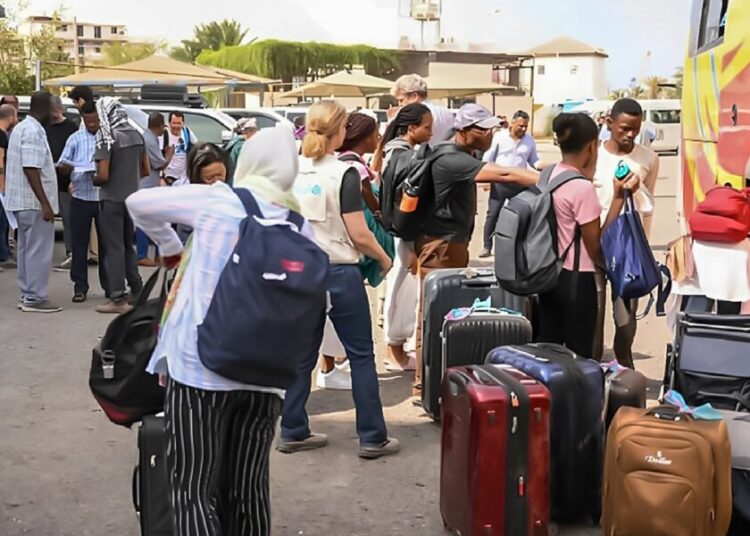Sudanese shop assistants are a common sight in Midan el-Gamia in the Cairo suburb of Heliopolis. Most of them are part-time students paying for their education. Near Hegaz Square in the same district is a Syrian who has his own jewellery and watch business. Opposite the Basilica in the same suburb, another Syrian owns and manages his peanut and sweet shop. You might be pleased to see a mention of things we can eat, as chef Marwa Mohamed told The Egyptian Gazette that she loves Syrian cuisine.
“I have learned so many recipes from my Syrian neighbour. My desserts are so much better. Syrian recipes have gone down well with Egyptians,” she gushed, adding that she “adores” African fashion. “I have seen many of my friends wearing gallabiyya-like clothing and tops with colourful African designs. “To be sure, the presence of other nationalities has enriched diversity in Egypt,” she gasped.
The United Nations High Commissioner for Refugees (UNHCR) said the number of refugees worldwide rose last year to 103 million from 89.3 million in 2021.
In 2016, President Abdel Fattah El Sisi launched the first national strategy to combat illegal immigration. Since then, no one has taken the plunge off Egypt’s Mediterranean coast to make the perilous journey to Lampedusa in a flimsy boat.
The most important initiative was ‘Life Boats’ launched during the 3rd World Youth Forum in December 2019.
Egypt has always been popular for Europeans. Centuries ago Greeks settled here in communities that spoke Arabic, traded and mingled with the locals. Some of the biggest names in science and mathematics — Euclid, Archimedes and his (s)crew — and the Ptolemy dynasty were Greeks. The largest Greek community was in Alexandria and a much smaller group resided further west in Mersa Matrouh who collected and sold loofahs for the bathroom. These Hellenistic peoples were an intellectual lot, so whenever they were asked an interesting question on the nature of the universe or the structure of matter, they would retort ‘use your loofah’.
In recent years, Africans have received a warm welcome here and engaged themselves in work and study without a hint of discrimination.
According to International Organisation for Migration (IOM), 102,000 immigrant and refugee students enrolled in Egyptian universities for academic year 2020-2021. Most were from Bahrain, Iraq, Jordan, Kuwait, Qatar, Saudi Arabia and UAE with 70 per cent male and 30 per cent female. Kuwaitis top the list with 20,000 students.
The IOM report said many Asian immigrants remain in Egypt because they are studying at Al-Azhar University. The Department of International Students at Al-Azhar said 38,000 students (of which 11,000 were from Africa) from 120 countries.
Salem Abbas, who is a student at Al Azhar University, told this newspaper that he has many African friends, from whom he has learnt a lot about Africa.
“Now know more about Africa’s five regions and I even know a few words Swahili from a Tanzanian friend,” Abbas said.
“Apart from some prejudicial comments on social media, we welcome our brothers in humanity. Egypt has been, and will forever be a home for all.”
According to the latest IOM survey, refugees from 133 countries account for 8.7 per cent of Egypt’s population — 4 million Sudanese refugees, followed by Syrians, Yemenis and Libyans, the report added.
In Sudan, talk of refugees (or ‘guests’, a term used by President Sisi) has started up again with many social media posts welcoming refugees.
“In the land of Egypt, there is no difference between an Egyptian, a Syrian, a Sudanese, an Ethiopian, an Eritrean, or anyone else,” said Mohamed Mansour on Facebook. “Everyone is the same and has equal in rights. Unlike in other countries, you won’t find any shelters or camps for people fleeing war. They are busy making a living and/or studying,” he added.






Discussion about this post